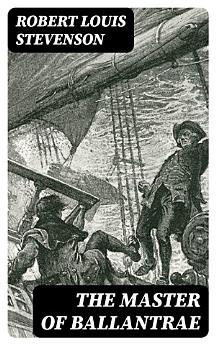The Master of Ballantrae
Nob 2022 · DigiCat
E-book
203
Mga Page
family_home
Kwalipikado
info
reportHindi na-verify ang mga rating at review Matuto Pa
Tungkol sa ebook na ito
In 'The Master of Ballantrae,' Robert Louis Stevenson weaves a gripping tale of rivalry, betrayal, and the haunting effects of familial discord. Set during the aftermath of the Jacobite uprising, the novel employs a rich, atmospheric narrative style steeped in gothic elements and adventure. The duality of its protagonist, the enigmatic and morally ambiguous Master James Durie, explores themes of loyalty and duality amidst the backdrop of a tumultuous Scotland, embodying the era's socio-political tensions and the allure of a lost cause. Stevenson's experimental narrative structure and psychological depth make this work not only a compelling read but also an exploration of the complex human condition. Stevenson—who spent his life navigating between Scotland and England—was deeply influenced by the historical and cultural tumult of his homeland. His fascination with the moral complexities of human nature, shaped by his upbringing and extensive travels, culminates in the creation of a character like the Master, who embodies both charisma and danger. Stevenson's acute understanding of the human psyche and his own experiences with rebellion manifest in this novel, reflecting a yearning for adventure amidst personal strife. 'The Master of Ballantrae' is highly recommended for readers who appreciate intricate character studies and morally complex narratives. Whether one is drawn to the historical context or the psychological dimensions of the characters, Stevenson's work offers a tantalizing exploration that resonates with contemporary themes of ambition and conflict. It stands as a testament to the author's literary genius and invites readers to grapple with the profound questions of identity and fidelity.
Tungkol sa may-akda
Robert Louis Stevenson (1850-1894), a towering figure in Victorian literature, continues to captivate readers with his adventurous tales and profound exploration of the human condition. Born in Edinburgh, Scotland, Stevenson was a man of diverse talents; a novelist, poet, essayist, and travel writer whose work reflects the complexity of his own life's journey. Despite frequent bouts of illness, Stevenson's output was prolific and his literary style distinctive, imbued with a combination of rich description, psychological depth, and a flair for suspense. Among his many acclaimed works, 'The Master of Ballantrae' stands as a testament to his ability to weave intricate narratives of rivalry and redemption. This novel, published in 1889, delves into the lives of two brothers set against the tumultuous backdrop of the Jacobite uprising, showcasing Stevenson's mastery of historical fiction and his keen insights into the duality of human nature. Stevenson's legacy endures not only through classics like 'Treasure Island' and 'Strange Case of Dr Jekyll and Mr Hyde', but also through 'The Master of Ballantrae', which continues to engage scholars and literary aficionados, cementing his status as a formidable storyteller and a perceptive chronicler of the human experience.
I-rate ang e-book na ito
Ipalaam sa amin ang iyong opinyon.
Impormasyon sa pagbabasa
Mga smartphone at tablet
I-install ang Google Play Books app para sa Android at iPad/iPhone. Awtomatiko itong nagsi-sync sa account mo at nagbibigay-daan sa iyong magbasa online o offline nasaan ka man.
Mga laptop at computer
Maaari kang makinig sa mga audiobook na binili sa Google Play gamit ang web browser ng iyong computer.
Mga eReader at iba pang mga device
Para magbasa tungkol sa mga e-ink device gaya ng mga Kobo eReader, kakailanganin mong mag-download ng file at ilipat ito sa iyong device. Sundin ang mga detalyadong tagubilin sa Help Center para mailipat ang mga file sa mga sinusuportahang eReader.








